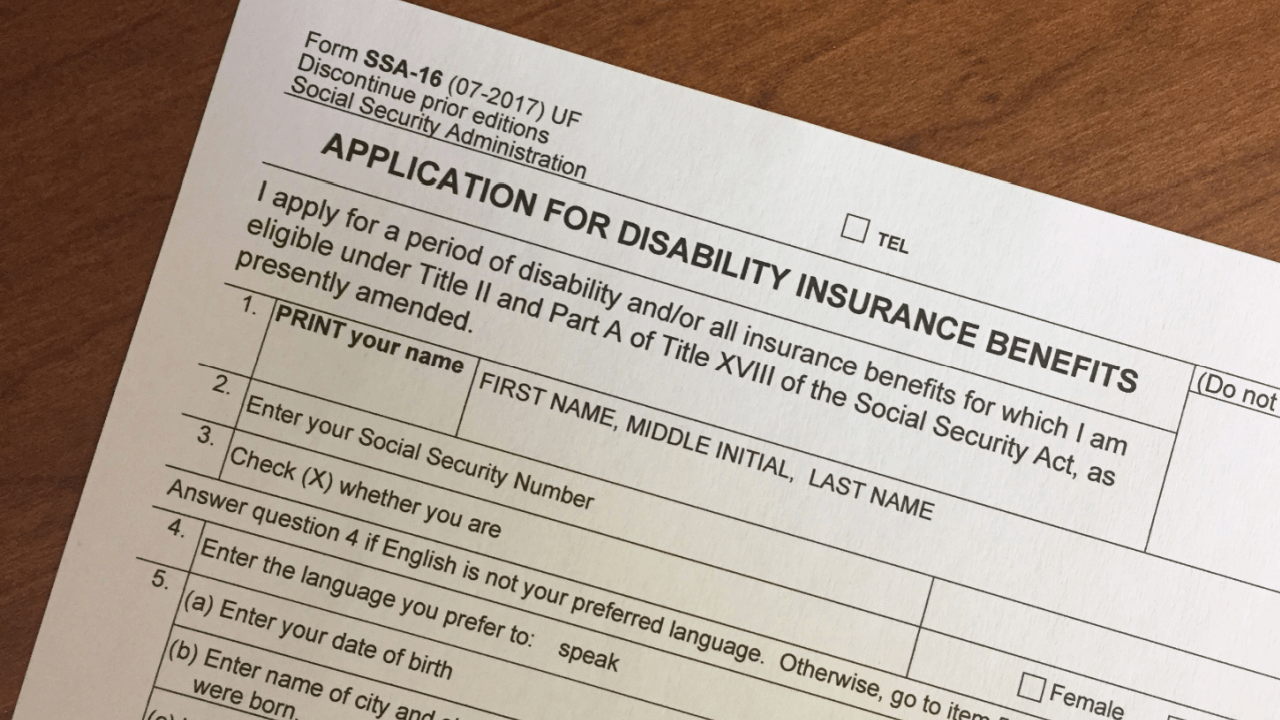
What is the 5/5 Year Rule for SSDI? Understanding Your Eligibility
Eligibility Rule Breakdown: What Is the 5/5 Year Rule for SSDI?
What is the 5/5 year rule for SSDI? This essential Social Security guideline determines whether you’ve worked enough to qualify for disability benefits. The rule requires applicants aged 31 and older to have worked at least five out of the last ten years before becoming disabled. Understanding this requirement is crucial for anyone considering applying for Social Security Disability Insurance.
The 5/5 year rule serves as a foundational eligibility requirement that ensures applicants have sufficient work history and have paid adequate Social Security taxes. This guide will explain how the rule works, who it affects, and what alternatives exist for those who don’t meet these requirements.
Work History Insight: How the SSDI 5/5 Rule Applies
The work history component of what is the 5/5 year rule for SSDI centers on earning work credits through Social Security contributions. In 2024, workers earn one Social Security credit for every $1,730 in covered earnings, with a maximum of four credits per year.
To qualify for SSDI under this rule, you need:
- 20 work credits earned in the 10 years before your disability began
- At least 40 total work credits throughout your career
- Consistent work history showing five years of employment in the past decade
You can work partial years, part-time, or earn credits slowly over the 10-year period, as long as you meet the 20-credits-in-10-years requirement. This flexibility helps workers with varying employment patterns still qualify for benefits.
Reinstatement Rule Guide: How the SSDI 5/5 Rule Affects Reapplication
The second aspect of what is the 5/5 year rule for SSDI involves re-applying for benefits. If you previously received SSDI benefits and need to reapply, there’s no five-month waiting period if you were entitled to disability benefits within the past five years.
This expedited reinstatement process applies when:
- Your previous disability is the same or related to your current condition
- You stopped receiving benefits due to work earnings
- You’re applying within five years of benefit termination
- You’re unable to perform substantial gainful activity
The re-application rule recognizes that disabilities can fluctuate and provides crucial support for individuals whose conditions worsen after attempting to return to work.
Qualification Exception Overview: Special Rules for the SSDI 5/5 Rule
Several groups have modified requirements for what is the 5/5 year rule for SSDI:
Age-Based Exceptions: Workers under age 31 may qualify with fewer work credits depending on their age and work history since turning 21. The Social Security Administration uses a sliding scale for younger workers who haven’t had time to accumulate extensive work histories.
Special Categories:
- Disabled Adult Children: Children who become disabled before age 22 may qualify based on their parent’s work record
- Veterans: Those with service-connected disabilities may have alternative qualification paths
- Blind Individuals: Can qualify with less work history if they worked at least one quarter in each of the three preceding years
Compassionate allowances provide another exception, allowing people with severe medical conditions to bypass work history requirements under certain circumstances.
Policy Update Recap: Recent SSDI Rule Changes
Recent Social Security Administration updates have simplified the disability evaluation process. Effective June 2024, Social Security began considering past relevant work going back only 5 years instead of 15 years. This change reduces the burden on applicants to recall extensive work history details.
These improvements aim to:
- Streamline the application process
- Reduce processing times for disability claims
- Improve the quality of information collected during evaluations
- Make the system more accessible to applicants
The modifications reflect the Social Security Administration’s commitment to reducing administrative burdens while maintaining program integrity.
Alternative Benefit Options: What to Do if You Don’t Meet the 5/5 Rule
If you don’t meet what is the 5/5 year rule for SSDI requires, alternative programs may provide assistance. Supplemental Security Income (SSI) provides monthly benefits and Medicaid for people with disabilities and limited income, with no work history requirements.
SSI eligibility focuses on:
- Current financial need and limited resources
- Meeting the Social Security Administration’s disability definition
- Income below substantial gainful activity thresholds
SSI can provide monthly benefits and Medicaid for qualifying individuals, making it a vital safety net for those without sufficient work history.
Application Strategy Plan: What to Do After Meeting SSDI Eligibility
Understanding the 5/5 year rule for SSDI is important when evaluating whether you may meet disability eligibility requirements. Once you’ve confirmed that you meet both the work history requirements and have a qualifying disability, the next step is gathering all essential documentation. This includes comprehensive medical records, detailed work history information, and relevant financial documents.
When navigating this complex process, consulting with a disability attorney or advocate may be helpful. If you’re seeking professional legal guidance, you may wish to visit SocialSecurity to learn more about whether speaking with a licensed attorney could be appropriate for your situation. Professional representation may help with understanding procedural requirements, organizing documentation, and responding to issues that arise during the process, including appeals.
Having guidance from the start may help you better understand the application process and available options.
Frequently Asked Questions
1. Can I qualify for SSDI if I haven't worked exactly five full years?
Yes, you don’t need five complete calendar years of work. The requirement focuses on earning 20 work credits over 10 years, which typically equals five years of work but can be achieved through part-time or seasonal employment spread across the decade.
2. What happens if I'm just short of meeting the 5/5 year rule?
If you don’t meet the work history requirement for SSDI, you may qualify for SSI instead. SSI has no work history requirements but does have strict income and resource limits that must be met.
3. Does the 5/5 year rule apply to all ages?
No, workers under age 31 have different requirements based on a sliding scale. The 5/5 year rule specifically applies to individuals aged 31 and older at the time their disability begins.
4. Can military service count toward the work history requirement?
Military service can count toward Social Security work credits if you served after 1956 and received wages or were credited with special earnings. Veterans may also have additional qualification paths for disability benefits.
5. How do I check if I have enough work credits?
You can check your work credit history by creating a my Social Security account online at ssa.gov. Your Social Security Statement shows your complete earnings record and accumulated work credits.
Key Takeaways
- The 5/5 year rule requires workers aged 31+ to have worked at least 5 of the last 10 years before disability onset.
- You need 20 work credits in the 10 years before your disability, typically requiring 5 years of covered employment.
- Previous SSDI recipients can reapply without waiting periods if applying within 5 years of benefit termination.
- Younger workers, veterans, disabled adult children, and blind individuals may have alternative qualification requirements.
- SSI provides an alternative for those who don’t meet SSDI work history requirements but have limited income and resources.


